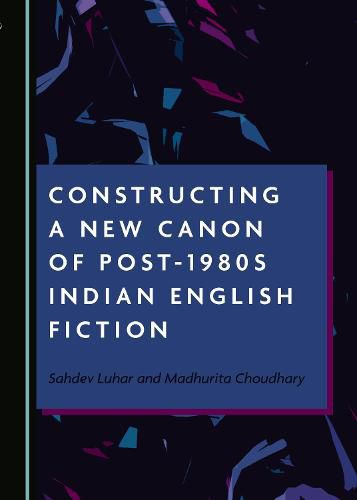Readings Newsletter
Become a Readings Member to make your shopping experience even easier.
Sign in or sign up for free!
You’re not far away from qualifying for FREE standard shipping within Australia
You’ve qualified for FREE standard shipping within Australia
The cart is loading…






The literary canon implies the evaluation or estimation of certain literary texts as the most important during a particular time. The canon is not merely a set of texts; it is a set of standards, evaluative procedures and values. Belonging to a canon confers a guarantee of literary greatness. A canon is formed, by a particular group, to channelize cultural hegemony over others, or, can be constructed, by a governed group, to bring about cultural symmetry. The rise of diverse literatures in English in different parts of the world after the colonial rule of England was the consequence of an urge to articulate a cultural equilibrium or an urge to strike back. The process of canon formation is also a focused and bigoted act, and is always carried out to accomplish certain self-centred objectives. It is commonly accepted that canon formation is executed to accomplish or naturalize certain ideological functions. In the sphere of Indian English literature, Indian English fiction after the end of the 1980s has emerged as a new canon . This book looks into the process of literary canon formation in Indian universities, and examines such fiction as an alternative literary canon and as an anti-imperialistic response to the British literary canon. The book ascertains the anti-imperialistic design involved in forming the canon of post-1980 Indian English fiction, examines the gradual emerging trends in such fiction, and discerns the role of language, culture, and native ethos in the formation of a canon. It also differentiates post-1980s Indian English fiction from British fiction, bhasa fiction, and even from pre-1980s Indian English fiction.
$9.00 standard shipping within Australia
FREE standard shipping within Australia for orders over $100.00
Express & International shipping calculated at checkout
The literary canon implies the evaluation or estimation of certain literary texts as the most important during a particular time. The canon is not merely a set of texts; it is a set of standards, evaluative procedures and values. Belonging to a canon confers a guarantee of literary greatness. A canon is formed, by a particular group, to channelize cultural hegemony over others, or, can be constructed, by a governed group, to bring about cultural symmetry. The rise of diverse literatures in English in different parts of the world after the colonial rule of England was the consequence of an urge to articulate a cultural equilibrium or an urge to strike back. The process of canon formation is also a focused and bigoted act, and is always carried out to accomplish certain self-centred objectives. It is commonly accepted that canon formation is executed to accomplish or naturalize certain ideological functions. In the sphere of Indian English literature, Indian English fiction after the end of the 1980s has emerged as a new canon . This book looks into the process of literary canon formation in Indian universities, and examines such fiction as an alternative literary canon and as an anti-imperialistic response to the British literary canon. The book ascertains the anti-imperialistic design involved in forming the canon of post-1980 Indian English fiction, examines the gradual emerging trends in such fiction, and discerns the role of language, culture, and native ethos in the formation of a canon. It also differentiates post-1980s Indian English fiction from British fiction, bhasa fiction, and even from pre-1980s Indian English fiction.